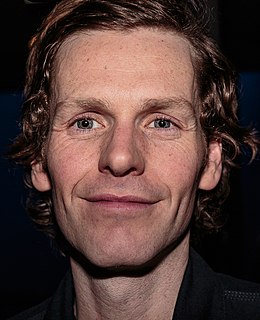A Quote by Tim Ferriss
There is always more information than attention
Quote Topics
Related Quotes
So while it is true that children are exposed to more information and a greater variety of experiences than were children of the past, it does not follow that they automatically become more sophisticated. We always know much more than we understand, and with the torrent of information to which young people are exposed, the gap between knowing and understanding, between experience and learning, has become even greater than it was in the past.
I don't think we should have less information in the world. The information age has yielded great advances in medicine, agriculture, transportation and many other fields. But the problem is twofold. One, we are assaulted with more information than any one of us can handle. Two, beyond the overload, too much information often leads to bad decisions.
There's a lot of health information available on your smart phone. There's financial information. There's your conversations, there's business secrets. There's an enormous long list of things that there's probably more information about you on here than exists in your home, right. Which makes it a lot more valuable to all the bad guys out there.
Many more children observe attitudes, values and ways different from or in conflict with those of their families, social networks,and institutions. Yet today's young people are no more mature or capable of handling the increased conflicting and often stimulating information they receive than were young people of the past, who received the information and had more adult control of and advice about the information they did receive.


































